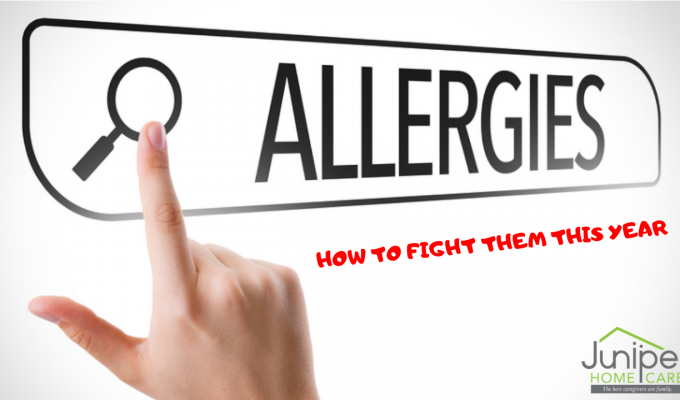A survival guide to help combat allergies and aging
This spring so far has been definitely different than previous years. The amount of rain that has fallen nationwide has increased by 37% from 2018. You may think the rain will help pollen from becoming airborne and affecting us. However, the plants and trees actually stop releasing pollen during downpours only to ramp up the release once the rain has stopped. This has caused allergies to be much worse than seasons before. An unfortunately, we know that allergies will affect babies and seniors much worse than adults. Her are a few tips to help withstand the effects of allergies.
Last year i did not have allergies
First off, lets talk about the scenario of this being your first year with allergies. As we age our bodies change. What affected us previously may not affect us anymore and vice versa. But, there are a few things that may cause allergies to flair up.
Medications – Certain prescriptions can exacerbate allergy symptoms in the elderly. For example, beta-blockers can worsen nasal stuffiness.
Diet – Some of our loved ones may be on a strict diet to help with cholesterol or high blood pressure. The foods that we eat may trigger allergies to flair up or worsen. Here is an article written by Everyday Health on the affects of food and allergies.
How to keep allergies at bay
While we all would love to make our allergies go away, that is not always possible. But, there are instances that we can help the runny nose and itchy eyes. First, let’s discuss the use of medication with seniors. Allergy medications are what is known as anti-histamines. A number of antihistamines that are often used to minimize the effects of allergies are not recommended for many seniors because they can increase blood pressure. Not only that, antihistamines can interact with other medications that you may be on, causing severe side effects such as dizziness, confusion, or drowsiness. Please consult with your doctor or physician before use of any medication. Here are some other ways that will help you with your allergies.
- If you need fresh air, open your windows slightly when it is raining. I know this may sound odd, but that is when pollen is at it’s lowest count.
- Avoid going places outdoors when the grass in the area has been cut recently. Mowing the lawn stirs up pollen that can remain airborne for 24 hours.
- I know some of us still use the clothes line to dry clothes. Keep your laundry indoors for the next few weeks, until the pollen subsides.
- Avoid people who have colds. This is a big one. You may not feel sick but your body can be fighting off a cold. When this happens your immune system is less resistant towards allergies and they will be worse during this time.
- Change ALL air filters in the house. Many of us think to change your air conditioning filter. However, at night time your furnace is probably still running. It did get down to 48 degrees last night. Change your furnace air filter as well.
Any questions with senior living or how to help with the changing seasons feel free to reach out at anytime to
More Blog Posts?
HEALTHY HABITS AND TIPS FOR CAREGIVERS
HOW TO STAY POSITIVE WHILE CAREGIVING!
WHAT IS THE FAMILY CAREGIVER PROGRAM?
Visit us on Instagram and Linked In

